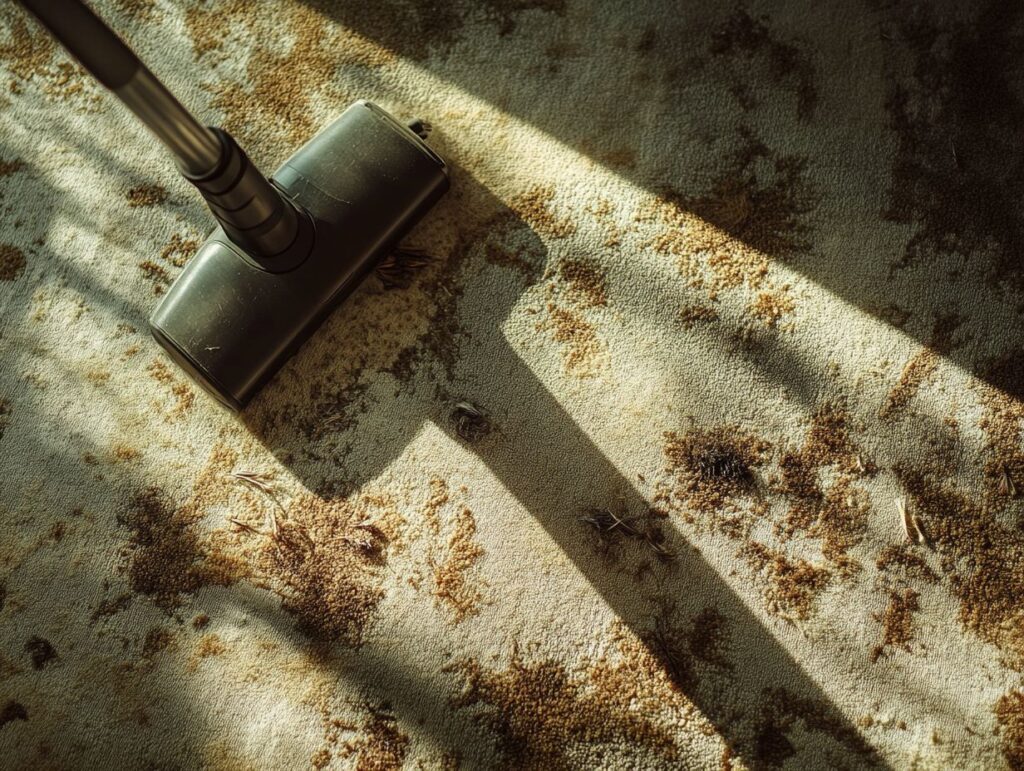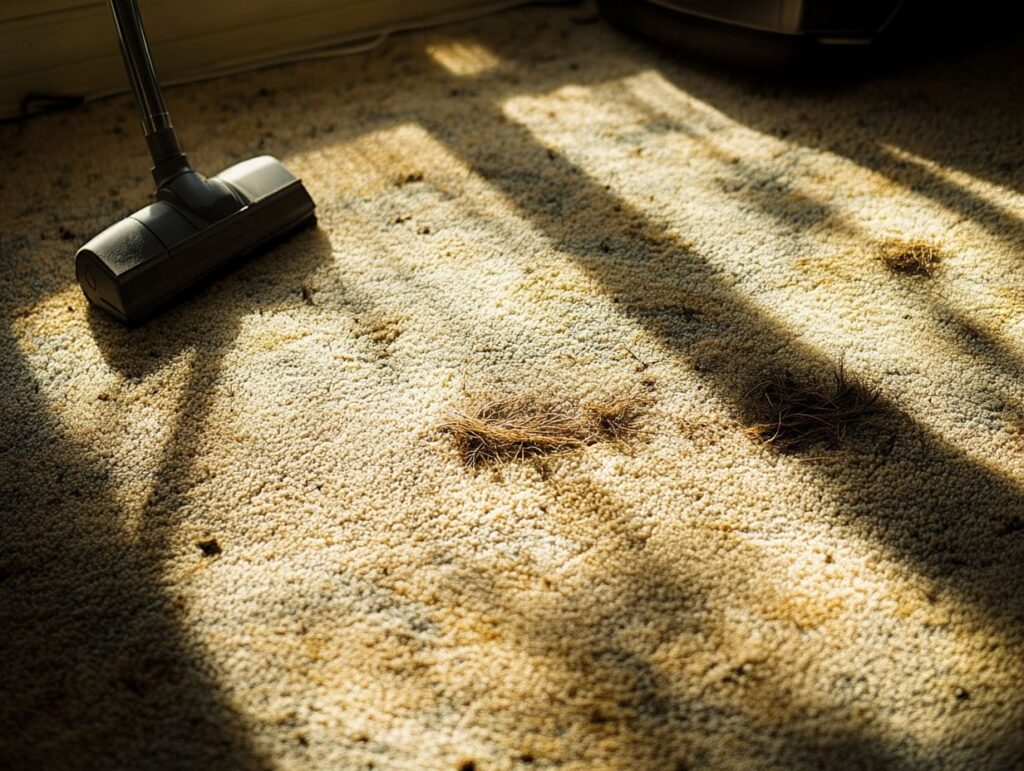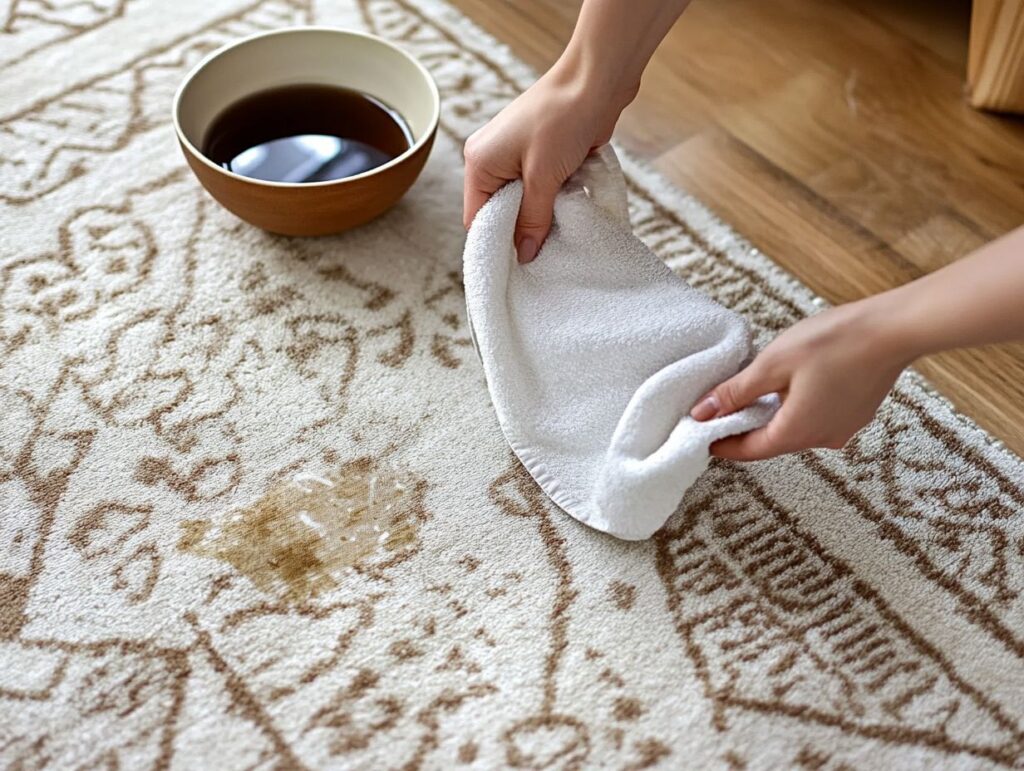Did you know that your cosy carpets could be harbouring hidden health hazards? Many of us overlook the condition of our carpets, but they can trap dust, allergens, and even bacteria that may lead to illness.
Our carpet-washing professionals share their insights on the direct correlation between keeping all carpets at home fresh and clean and the wellbeing of your family. We will take a deeper look at the science behind the most common respiratory problems and allergies and how carpets can play the role of the invisible culprit. However, it is not all gloom and doom – we will also give you easy-to-follow tips to negate the potential hazards to your health.

How Dirty Carpets Can Make You Sick
You might not realise it, but the condition of your carpets can affect your health. Dirty carpets can trap allergens, bacteria, and other nasties that pose serious health risks.
From dust mites to mould, these little troublemakers can trigger respiratory issues, worsen asthma, and lead to allergies. Plus, catching whiffs of foul odours is a sign of deeper issues like pet dander or mildew, which could make you feel unwell over time.
Understanding how dirty carpets are connected to health problems is essential for keeping your home environment safe and healthy.
Potential Health Hazards
Dirty carpets aren’t just an eyesore; they can also be a hotbed for various pathogens and contaminants. Over time, all that dust, dirt, and debris can build up and become irritants, potentially triggering an immune response in sensitive people. You could face health hazards like allergies, respiratory issues, and even illness from exposure to these irritants and germs.
These carpets can be home to harmful microorganisms, including bacteria, mould, and dust mites, which thrive in the warm, dark corners carpets provide. If you neglect regular cleaning, you’ll only worsen things, increasing the risk of infections and aggravating conditions like asthma or eczema. Allergens such as pet dander and pollen can get trapped in those fibres, making it tough for anyone with sensitivities to breathe easily.
Sticking to a regular cleaning schedule is essential to tackling these health risks head-on. It will help create a healthier living environment for everyone around you.
Signs of a Dirty Carpet
Recognising the signs of a dirty carpet is your first step to maintaining a healthy home environment. If you notice persistent unpleasant odours, visible dust accumulation, or discolouration in the carpet fibres, those could be red flags pointing to underlying issues like mildew or harmful allergens.
Awareness of these signs helps you assess potential health risks and take action before irritant exposure leads to more severe health problems.
Identifying and Addressing Dirty Carpets
Identifying dirty carpets isn’t just about spotting stains; it’s also about knowing the proper cleaning methods to keep them in top condition. Regular maintenance tips can help you control dust and extend the life of your carpets. When it comes to deeper issues, knowing when to call in the professionals is critical to getting rid of allergens and contaminants and keeping your home healthy.
Pay attention to more than visible dirt or stains to determine if your carpets need TLC. Those pesky odours that linger even after you vacuum? They’re a clue, too. If your carpets look flat and matted, it’s time for a deeper clean.
For maintenance, regular vacuuming and spot cleaning help minimise grime build-up. You might also want to consider natural or steam-cleaning solutions to refresh your carpets. Don’t underestimate the power of periodic professional cleaning; it can tackle ingrained dirt and allergens that are tough to manage independently.
By following these practices, you’ll preserve the quality and longevity of your carpets and create a healthier living environment.

Preventing Health Issues from Dirty Carpets
Preventing health issues from dirty carpets starts with understanding the importance of proper carpet maintenance and hygiene standards.
Using effective cleaning products and scheduling regular deep cleaning services can significantly enhance indoor air quality and reduce allergens. This proactive approach protects your health and helps extend the lifespan of your carpets.
Effective Cleaning and Maintenance Strategies
Establishing an effective cleaning routine is vital to keeping your carpets hygienic and reducing health risks. You can significantly enhance indoor air quality and reduce allergens by using the proper techniques, such as steam cleaning and adhering to a solid cleaning schedule. Moreover, having the appropriate cleaning tools makes everything more efficient and effective.
Regular vacuuming of high-traffic areas helps you tackle dirt and debris before they become ground into the fibres. And don’t forget about deep cleaning every few months—it’s a great way to banish stubborn stains and odours.
Using eco-friendly cleaning solutions is a win-win; it’s good for the planet and keeps your space safe for your family and pets by minimising exposure to harsh chemicals. Don’t overlook spot cleaning immediately after spills—it can save your carpets from lasting damage. This proactive approach helps your carpets look great and last longer, making your living space healthier and more inviting.
Cleaning Products and Their Impact on Health
The cleaning products you choose affect your home environment and your health. Some conventional cleaners contain toxic chemicals that can lead to irritant exposure, respiratory issues, and other health problems.
Understanding the toxicity of these products can help you make wiser choices about safe cleaning practices that improve indoor air quality.
Choosing Safe and Effective Cleaning Products
Choosing safe and effective cleaning products is critical to keeping your home healthy. Being health-conscious and opting for eco-friendly options can reduce the risk of irritation and harmful exposure while ensuring your carpets stay clean and safe. This smart choice benefits your health and helps improve indoor air quality.
When you’re picking out products, take a close look at the ingredients. Many conventional cleaners contain harmful chemicals that can linger in the air and settle on surfaces. Eco-friendly alternatives often use plant-based ingredients, which are less likely to release volatile organic compounds (VOCs). Furthermore, how often you clean can affect the safety of the products you choose; using milder, greener solutions means you can clean more often without worrying about toxicity.
Ultimately, by selecting environmentally responsible products, you’re protecting your home and supporting a sustainable future for our planet.
